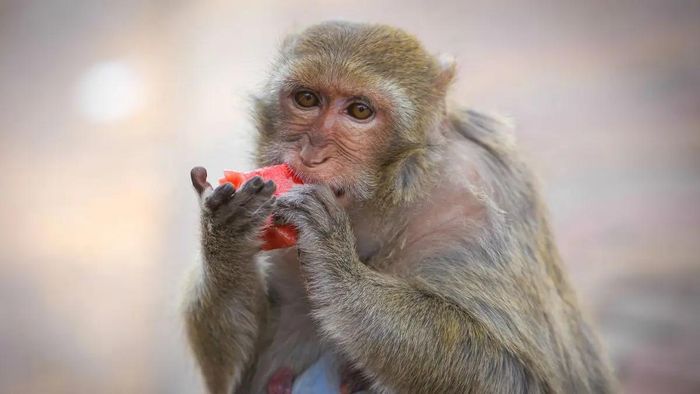Sikkim: Feeding monkeys will invite a fine of Rs 5,000
Feeding Monkeys can attract fines, yes you hear it right, as per the new public notice issued by the Forest and Environment Department, Government of Sikkim.

- Aug 26, 2023,
- Updated Aug 26, 2023, 9:33 AM IST
Feeding Monkeys can attract fines, yes you hear it right, as per the new public notice issued by the Forest and Environment Department, Government of Sikkim.
The Forest, Environment and Wildlife Department of the Sikkim government has said that feeding monkeys or improper disposal of food waste will be considered an offence and violators will be fined Rs 5,000.
The notice reads “the Monkey (Macaque species) is a protected species, and feeding it is strictly prohibited under the Wildlife (Protection) Act, 1972 and the Environment (Protection) Act, 1986. Henceforth, feeding of monkeys or improper disposal of food waste will be treated as an offence and violators will be fined Rs 5000/- (Rupees Five Thousand). This will help to raise public awareness and have a deterrent effect as well. Let us all be responsible and mindful of our actions, thereby ensuring that our environment remains safe and harmonious for everyone.”
This is also an attempt to handle the rising cases of Monkey menace and Human-Animal conflict.
Also Read: Sikkim CM conveys condolences over landslide incident claiming life of 4-year-old in Lower Lungzik
The notice also reads “This is to highlight an important matter that concerns the safety and well-being of all of us. Human feeding of monkeys (Macaque species) and improper management of food waste have resulted in unnatural growth in their population. As a result, residents in urban and rural areas are faced with increased instances of human-monkey conflict, which has now grown into a public health and safety issue."
It is essential to recognize that feeding monkeys and improperly disposing of food waste poses several risks and concerns:
Safety Hazards: The monkeys fed by humans lose their sense of fear and have now learnt to "associate food with people" and they get attracted and slowly become aggressive. Monkeys are wild animals, and their behaviour can be unpredictable. Feeding them encourages them to approach humans, increasing the risk of bites or injuries, especially to women and children. Also, transmission of zoonotic disease from primates to humans and vice versa is another risk.
Wildlife behaviour: When food becomes readily available, instead of spending their time foraging in forests, these macaques visit offices, homes, religious places, supermarkets and shops hoping to get food from humans. Human food products are calorie-rich and an easily digestible source of food, however, these foods elevate stress levels and increase inter-group aggression. Hence, providing food to monkeys can disrupt their natural feeding patterns and behaviour. Health and Sanitation: Feeding monkeys can create an unsanitary environment, leading to the accumulation of waste and attracting pests, which can adversely affect hygiene.